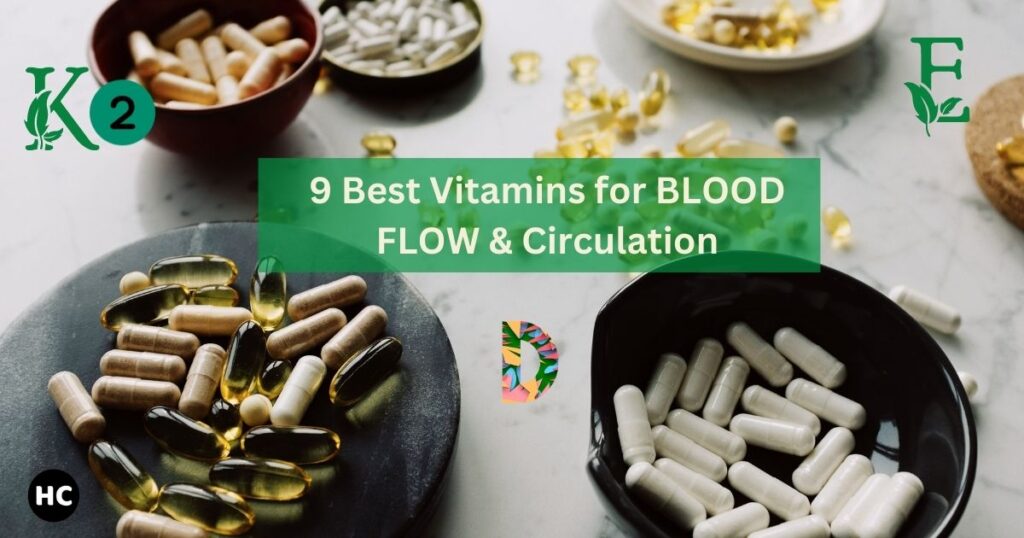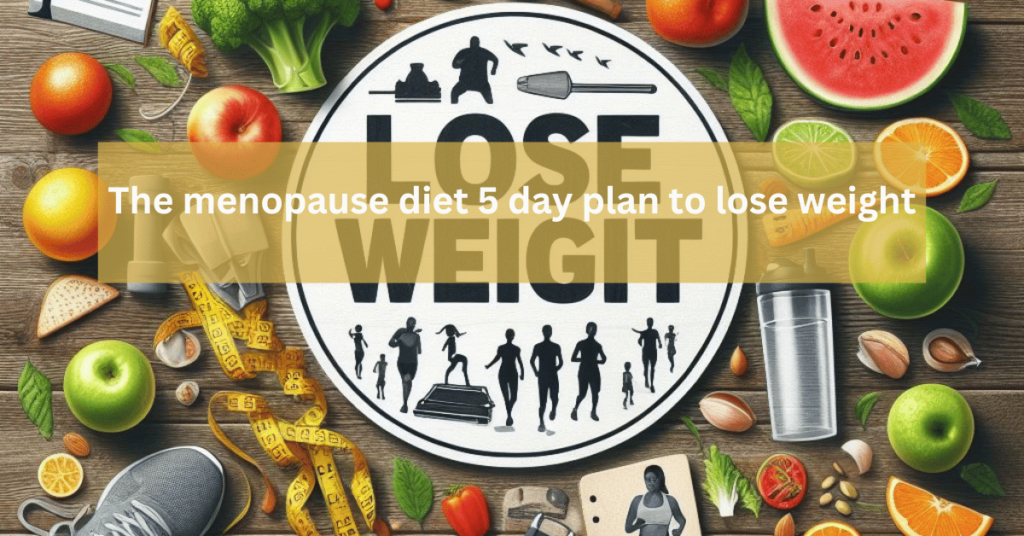Are you feeling tired? Can’t seem to shake that sluggish feeling? We’ve got the ultimate remedy. It’s not a cup of coffee, a nap, or even a good old-fashioned run in the park. It’s something much more essential, much more vital, and much more energy-boosting. We’re talking about blood flow and circulation. That’s right. Did you know that poor blood flow and circulation can lead to serious health issues like fatigue, heart disease, and stroke? In this article, we’ll share the top vitamins that will give your blood flow and circulation the boost they need. So sit back and prepare to be amazed by the power of vitamins.
Vitamin K2: The Calcium Mover
First up is Vitamin K2.
Circulation means that blood is moving through the body’s arteries, veins, and capillaries. Good circulation is vital for transporting oxygen and nutrients to your tissues and organs and eliminating waste.
Sometimes, as our blood circulates throughout the body, we can experience blood clotting, which Vitamin K can help manage! But did you know that a specific form of this vitamin, called Vitamin K2, is what actually helps circulation?
Vitamin K2, also known as menaquinone, is a form of vitamin K that has exceptional benefits for circulation. It works by activating a group of proteins called matrix Gla protein, or MGP.
Calcium deposits can build up in the blood vessels as we age, making them narrower and stiffer. This can hamper blood flow and increase the risk of cardiovascular disease. However, Vitamin K2 can help prevent this by activating MGP proteins that move calcium out of the blood vessels and into the bones. This helps to keep the blood vessels flexible and open, allowing for better blood flow.
Some of the benefits of Vitamin K2 for circulation are:
- It lowers the risk of dying from heart disease
- It may be suitable for brain health and how the body uses sugar
The RDA for vitamin K2 is 180–360 mcg. However, it’s important to note that if you are on blood-thinning medication, you should consult your doctor before taking this vitamin.
B Vitamins: The Homocysteine Fighters
Moving along, take the B vitamins seriously.
B vitamins are a group of important nutrients that help keep the body healthy by controlling the flow of blood. Folate, Vitamin B6, and Vitamin B12, in particular, help the body control how much homocysteine it makes.
What is Homocysteine and Why is it Bad?
Homocysteine is an amino acid created as a byproduct of protein metabolism. An ideal homocysteine level is 7–10 umol/L. But when homocysteine levels are higher than this, it can damage the endothelium, or the lining of the blood vessels.
This makes it more likely that you will develop:
- Atherosclerosis, or hardening of the arteries
- Blood clots, or blockages in the blood vessels
- Coronary heart disease, or narrowing of the arteries that supply blood to the heart
These conditions can increase your chances of having a stroke or developing dementia.
How do B Vitamins Help?
Folate, Vitamin B6, and Vitamin B12 all work together to change homocysteine into other amino acids, like cysteine and methionine, that are not bad for the blood vessels. When a good amount of these vitamins is in the body, they can help keep homocysteine levels in a healthy range and protect the endothelium from damage.
The suggested daily dose of vitamin B12 is around 3 micrograms, vitamin B6 is around 2 mg, and folate is 400 micrograms of dietary folate equivalents (DFE).
However, studies say that higher daily doses of these vitamins may be needed to reduce homocysteine levels. A study was conducted on individuals who had suffered mild strokes, which examined the effects of a high-dose formulation of B vitamins.
This formulation contained:
- 25 milligrams of B6
- 400 micrograms of B12
- Around 2 milligrams of folic acid
However, the study concluded that this treatment did not have any significant effect on vascular outcomes. The consistent association of total homocysteine with vascular risk suggests that further investigation into the hypothesis is needed. Therefore, longer trials involving different populations with elevated total homocysteine may be necessary to fully explore the potential benefits of high-dose B vitamin formulations.
But suppose you have a genetic variant that reduces your folate metabolism. In that case, it’s a good idea to have your homocysteine level tested and take the appropriate daily B vitamins recommended by a medical professional.
Vitamin B3: The Inflammation Reducer
Vitamin B3, also known as niacin, is also essential for circulation. It can reduce inflammation and bad cholesterol, or LDL levels, which can help improve blood flow and reduce the risk of cardiovascular disease.
B vitamins are essential for making red blood cells, fighting off infections, and even keeping your brain and nervous system healthy. Vitamin B nutrients are abundant in green leafy vegetables such as kale and spinach. You can also benefit from a vitamin B supplement.
Vitamin E: The Endothelial Protector
Do you eat enough vitamin E?
Vitamin E has several mechanisms through which it can improve circulation.
How does Vitamin E Help?
First, did you know it protects the endothelial cells that line blood vessels? These cells are essential for keeping blood vessels healthy and ensuring proper blood flow. Vitamin E protects endothelial cells from oxidative stress. It can also help reduce inflammation in the blood vessels, lowering the risk of heart disease. Also, vitamin E has a beneficial effect on the production of nitric oxide because it increases nitric oxide production. Nitric oxide is a molecule made by endothelial cells. It helps blood vessels relax and widen, which improves blood flow.
Find out if you’re getting enough vitamin E and how to boost your levels in our video, “6 Signs You’re Not Getting Enough Vitamin E,” and get the inside scoop on the fun, easy ways to improve vitamin E levels.
Antioxidants: The Oxidative Stress Reducers
Now let’s talk about a few antioxidants.
Antioxidants are good for healthy circulation because they help reduce oxidative stress and inflammation. When your body has too many free radicals or insufficient antioxidants, it can lead to oxidative stress, which damages cells and tissues and can result in inflammation.
Some of the antioxidants that can improve circulation are:
- Polyphenol-rich plant extracts like curcumin, which is found in turmeric
- Resveratrol, which is found in grapes, berries, and peanuts
How does Curcumin Help?
Curcumin is a potent anti-inflammatory agent. It reduces inflammation in the blood vessels, improves the blood vessels’ health, and promotes better blood flow. Turmeric also helps reduce platelet aggregation because curcumin inhibits the formation of blood clots. Platelets are blood cells that play a role in blood clotting. When platelets aggregate or stick together, they can form clots that block blood flow. Turmeric also promotes the release of nitric oxide. Try turmeric root, the dried spice, or 125 mg of turmeric extract to enjoy these benefits.
How does Resveratrol Help?
Resveratrol can improve circulation just like curcumin. It also reduces inflammation in the blood vessels, improves their health, and promotes nitric oxide production.
Resveratrol also helps prevent platelet aggregation and clot formation.
30–100 mg of resveratrol daily can significantly affect your blood vessels.
Vitamin C: The Collagen Maker
Now, let’s talk about the superhero of the vitamin world: vitamin C.
Vitamin C, also known as ascorbic acid, is a water-soluble vitamin that helps strengthen the blood vessels by making more collagen. Collagen is a structural part of the walls of blood vessels, and its deficiency can weaken the blood vessels, affecting your circulation.
How does Vitamin C Help?
Vitamin C also has antioxidant properties, which can help protect the blood vessels from damage caused by free radicals. It can eliminate free radicals and lower the chances of blood vessel damage. Vitamin C also inhibits the oxidation of LDL cholesterol and prevents arterial plaques. If ignored, plaques can block blood flow and increase the risk of cardiovascular disease in the long run. Nitric oxide, which is vital for controlling blood flow, is also made better by vitamin C. So make sure to include a lot of citrus fruits or supplements in your diet. The recommended daily amount (RDA) for vitamin C is 90–75 mg.
L-Arginine And L-Citrulline: The Nitric Oxide Boosters
Moving along, you need a vitamin duo: L-arginine and L-citrulline.
These two amino acids are known for improving circulation and cardiac health. By working together in a process called the L-arginine-nitric oxide pathway, L-citrulline is converted into L-arginine in the body, stimulating nitric oxide production.
How do L-Arginine and L-Citrulline Help?
The improved blood flow and circulation brought on by increased nitric oxide levels can lead to many benefits for cardiovascular health. Nitric oxide lowers blood pressure by making blood vessels wider. This makes it easier for the heart to pump blood throughout the body, which lowers blood pressure. This can help to protect the heart from the strain that high blood pressure puts on it.
Another benefit of L-arginine and L-citrulline is the improvement of peripheral circulation. Peripheral circulation is the flow of blood through the body’s smaller blood vessels and capillaries outside the heart and brain.
The smaller vessels are also affected by nitric oxide, which can help to improve vasodilation. Vasodilation is the widening of blood vessels, which boosts circulation. This can help with conditions like neuropathic pain and erectile dysfunction.
L-arginine and L-citrulline are found in:
- Red meat
- Chicken
- Pork
- Dairy products
- Lentils
- Chickpeas
- Soybeans
- Fruits, especially watermelons
Vitamin D: The Blood Pressure Regulator
Last on our list is vitamin D.
Vitamin D is an important nutrient for healthy bones, a strong immune system, and strong muscles. Recent research suggests that vitamin D plays a role in heart and blood vessel health, including improving blood flow. Those with low vitamin D levels are more likely to have issues with their cardiovascular system, including high blood pressure, heart attacks, and strokes.
How does Vitamin D Help?
Vitamin D regulates the levels of the hormone angiotensin, which is a vasoconstrictor and raises blood pressure. Vitamin D also helps promote nitric oxide production and lower blood pressure. It also regulates certain enzymes, such as the renin-angiotensin-aldosterone system (RAAS), a hormone system that controls blood pressure and fluid balance in the body.
Vitamin D can change the levels of specific inflammatory markers, like interleukins and TNF-alpha, which are involved in inflammation and the health of blood vessels. All these factors promote excellent circulation.
Vitamin D is present in:
- Oily fish
- Eggs
- Mushrooms
But most of it is produced by the body when the skin is exposed to sunlight. So try to increase your vitamin D intake by spending more time outside or supplementing.
Conclusion
Blood flow and circulation are essential for your health and well-being. They affect your energy levels, your heart function, your brain performance, and your overall quality of life. Fortunately, you can improve your blood flow and circulation by taking some vitamins that have proven benefits for your blood vessels.
In this article, we have discussed nine of the best vitamins for blood flow and circulation.
- Vitamin K2: The Calcium Mover
- B Vitamins: The Homocysteine Fighters
- Vitamin E: The Endothelial Protector
- Antioxidants: The Oxidative Stress Reducers
- Vitamin C: The Collagen Maker
- L-Arginine And L-Citrulline: The Nitric Oxide Boosters
- Vitamin D: The Blood Pressure Regulator
These vitamins can help you prevent or reduce the risk of various cardiovascular problems, such as high blood pressure, atherosclerosis, blood clots, heart disease, and stroke. They can also help you with other conditions that are related to poor circulation, such as neuropathic pain and erectile dysfunction.
You can get these vitamins from various food sources, such as fruits, vegetables, nuts, seeds, legumes, dairy products, eggs, fish, and meat. You can also supplement with these vitamins if you have a deficiency or a genetic variant that affects your metabolism.
However, before taking any supplements, you should consult your doctor to determine the right dosage and avoid any potential interactions with other medications or health conditions.
We hope this article has given you some valuable information and insights on how to improve your blood flow and circulation with vitamins. Remember to eat a balanced diet, exercise regularly, stay hydrated, and avoid smoking and excessive alcohol consumption to maintain optimal blood flow and circulation.
FAQs:
Q: What are the benefits of improving blood flow and circulation?
A: Improving blood flow and circulation can help you boost your energy levels, prevent or reduce the risk of various cardiovascular problems, and improve your brain and nervous system function.
Q: What are the signs of poor blood flow and circulation?
A: Some of the signs of poor blood flow and circulation are fatigue, cold hands and feet, numbness or tingling sensations, swelling, varicose veins, leg cramps, skin discoloration, slow wound healing, and erectile dysfunction.
Q: How can I get more vitamin K2 in my diet?
A: Vitamin K2 is mainly found in animal-derived foods, such as cheese, butter, egg yolks, liver, and meat. You can also get some vitamin K2 from fermented foods, such as natto, sauerkraut, and kefir.
Q: How can I increase my nitric oxide production naturally?
A: You can increase your nitric oxide production naturally by eating foods that are rich in nitrates, such as beets, spinach, celery, lettuce, and arugula. You can also take supplements that contain L-arginine and L-citrulline, which are amino acids that stimulate nitric oxide production.
Q: How much vitamin D do I need per day?
A: The recommended daily amount (RDA) for vitamin D is 15–20 micrograms (600–800 IU) for most adults. However, some people may need more or less depending on their age, skin color, sun exposure, health status, and genetic factors. You can get your vitamin D level tested by a blood test and consult your doctor for the appropriate dosage.







